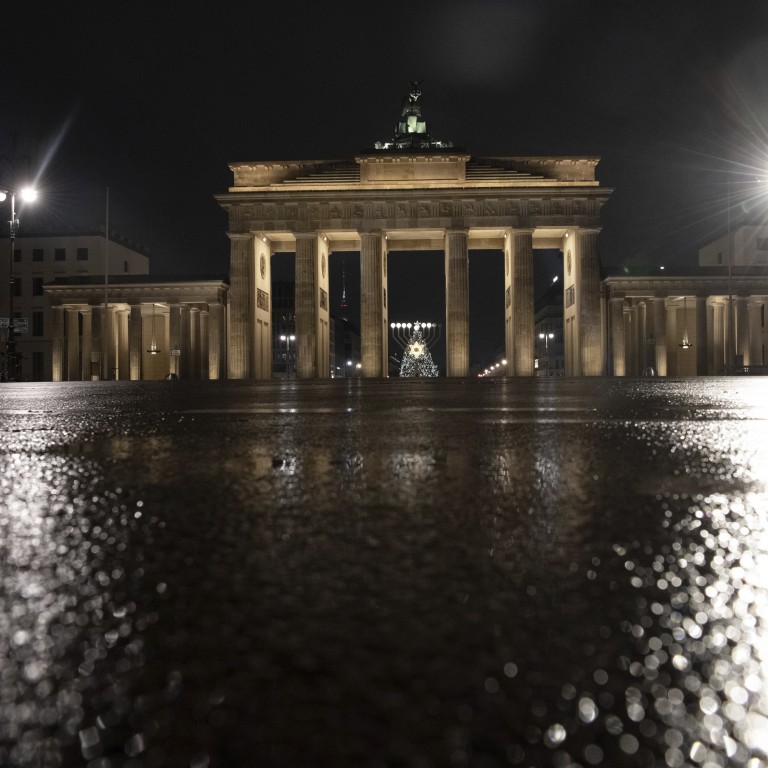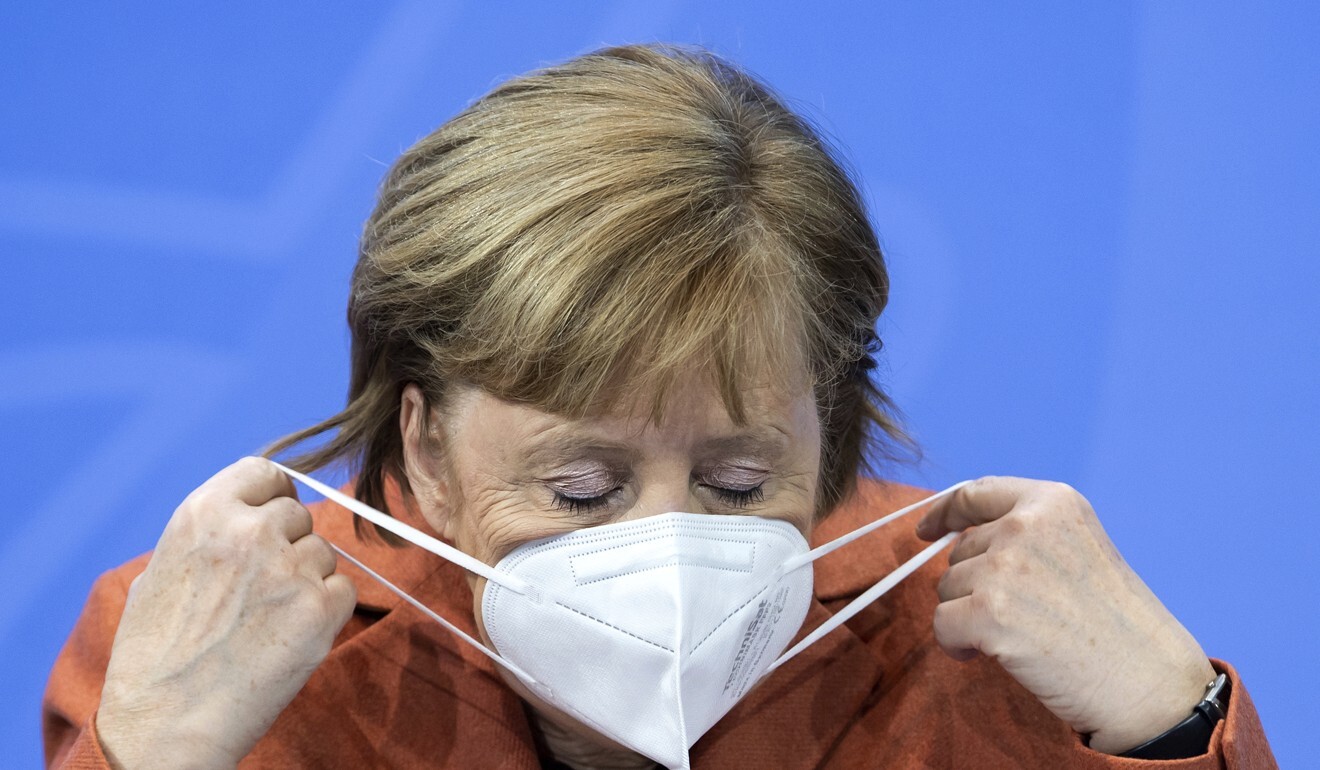
Coronavirus: record 952 dead in 24 hours as Germany enters lockdown
- Tighter restrictions – including a ban on gatherings over the New Year – will last until at least January 10
- Chancellor Angela Merkel hammered out tighter curbs with state leaders after looser shutdown failed to halt Covid-19 surge
Germany reported 952 coronavirus deaths in 24 hours on Wednesday, a daily record, as the nation returned to a strict lockdown mode for the second time this year.
The number of confirmed coronavirus cases also increased by 27,728 to 1,379,238, according to the Robert Koch Institute.
The national death toll stood at 23,427 and the previous one-day high was 598 last Friday.
Under new rules meant to counter a surge in Covid-19 infections and deaths, schoolchildren will stay at home and non-essential shops will shut for at least four weeks, at the height of the Christmas shopping season.
Chancellor Angela Merkel and the country’s 16 governors brushed aside appeals from industry and retail leaders.
Hair salons will also close, alcohol consumption outdoors will be banned and New Year’s Eve fireworks displays have been cancelled.
Germany’s leaders also urged employers to send their workers into a prolonged winter holiday or have them work at home, in a bid to get as many of the country’s 82 million residents off the streets.
Christmas markets, gyms, theatres, restaurants, pubs and all other nightlife had already been shut since early November in what proved to be a futile surgical attempt – known as its “lockdown lite” – to slow the autumnal spread of the coronavirus.
The virus first hit Germany in February, forcing a month-long lockdown in March/April that was initially deemed a success in containing it through the spring and summer.
But Germany’s health system is coming under strain, with several regions warning of dwindling numbers of available intensive care unit beds. That is what prompted Merkel and the state leaders to act to all but shut down Christmas in the country where holiday traditions run deep and holiday-season sales make up to 75 per cent of annual revenues for some businesses.
Germany coronavirus crisis taking ‘worrying’ turn for worse as deaths top 20,000
Similar extensive closings were subsequently announced in neighbouring countries such as the Netherlands and Czech Republic.
“I would urgently appeal upon everyone to make a contribution by avoiding all contacts that are not absolutely essential so that we don’t end up overwhelming our health system,” said Merkel, who had been trying futilely for the last two months to persuade the independent-minded state governors, who wield significant clout in Germany’s federal system, to follow her calls for more far-reaching measures. “At this point we don’t know how this will all develop in January.”

Rising Covid-19 numbers have shattered public confidence in Germany which had success earlier in the pandemic with science-based government policies.
Other European countries including the UK, France, Spain and Italy struggled in the spring and summer with much higher infections and death tolls.
In Germany, with an obedient public largely adhering to social distancing guidelines, there was also almost-universal mask wearing, widespread contact tracing and extensive testing from an early date.
Retailers were appalled by the abruptness of the pre-Christmas shutdown.
Germany makes vaccination plans as coronavirus cases pass 1 million
“The government is in over their heads and we retailers are having to pay the price for that,” said Emine Akgedik, who operates a popular hair salon in Berlin with a half-dozen employees that will have to close on Wednesday for at least the next four weeks – even though government officials had promised in the spring that there would be no need to close shops like hers again. “Letting us stay open for another week or two would prevent a lot of heartache for small businesses like mine.”
German President Frank-Walter Steinmeier said people’s lives will be more restricted than ever before.
“The situation is harrowingly serious,” he said on Monday. “Preserving health and saving lives are the issues now at hand.”

So what has gone wrong? Why did Germany go from being a poster child to a problem child?
“It’s not an easy question to answer,” said Christoph Specht, a doctor and medical journalist. “Perhaps in general there might have been a bit too much complacency in the spring and summer months when the numbers were down after the first wave when there was a feeling that the virus could be kept under control with only minor pinpoint closings.”
Thousands in Germany protest against coronavirus restrictions
Germans are also perplexed about the gloomy year-end outlook that comes just weeks after hope was in the air. A German company, BioNTech, had developed a vaccine together with US drug maker Pfizer that has been authorised for use in Britain and the United States. It is not expected to win approval in Germany through the European Medicines Agency (EMA) until the end of December.
“It’s incomprehensible,” wrote Paul Ronzheimer in a scathing editorial in Bild newspaper, Germany’s bestselling tabloid. “The whole world is cheering the vaccine developed by BioNTech in Germany but we’re stuck looking like fools on the sidelines. What the hell? When are we going to start using the vaccine and start saving lives?”
“The goal is to get approval before Christmas,” German Health Minister Jens Spahns said in Berlin. “We want to start vaccinating in Germany before the end of the year.”

